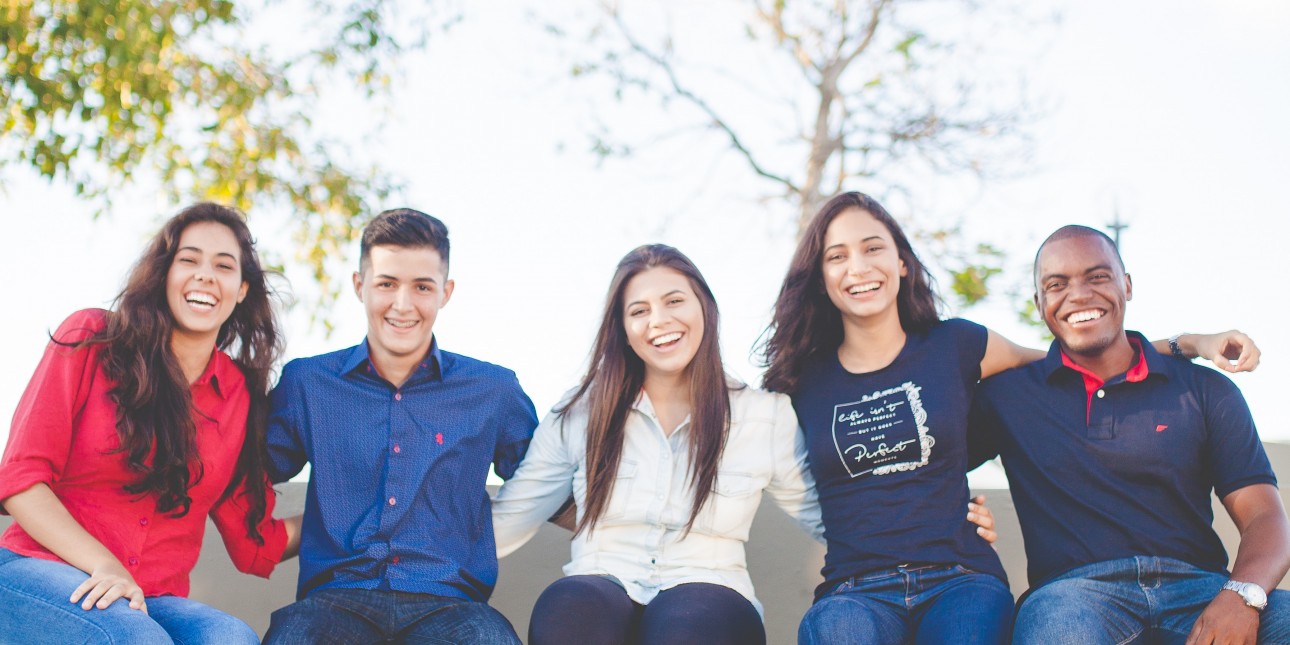Building Community

Building Community
Our work is at its strongest when young people feel grounded in their identity, understand who they are, have a vision for where they are going, and a network of support to help them get there. For some young people, models of healthy relationships and community are readily available. For other young people, healthy relationships may have been damaged or communities challenged, it is here that we have work to do in helping them thrive. As providers and advocates, we must engage and partner with systems (i.e justice, child welfare and homeless response) to prevent harmful policies and practices while also building restorative and empowering strategies to support this work. Youth Collaboratory recognizes the value and the power of something that seems so simple, but whose impact is so great- building relationship, building family, building community.
Youth Collaboratory believes that:
- All young people should have access to caring and supportive relationships in their life.
- Every young person has the skills, opportunities, and abilities to identify, create, and connect with a network of support that includes families, neighborhoods, schools, and the community.
- There are caring and supportive adults who are equipped with the knowledge, skills, and resources to authentically connect with and support young people in exploring their interests, assets, and aspirations.
- We all have a role in reimagining systems that promote and strengthen individuals, families, and community.
In that space, where generations come together in partnership to grow, true community is found.
How We Build Community
Youth Collaboratory plays a unique role in bringing together programs from across youth and young adult service sectors nationwide to do the work. This starts by using a Positive Youth Development framework as the grounding point for our approach to intentional practices and research that supports building communities with young people. Doing so allows space for young people to build assets, explore their strengths, and develop lasting connections.
Building strong community starts small and close to home. The first step often starts with the family, and expands from there. We see family engagement as any way that a young person’s biological, adopted, or chosen family can effectively be supported and/or support and contribute to positive outcomes. Youth Collaboratory develops relationship-based tools and strategies to support young people, adults, and programs to engage families in ways that are authentic, culturally competent, and lasting.
From the family, a young person’s connection to community can expand in many ways. Youth Collaboratory is committed to helping young people and the programs that serve them connect to:
- Education & Employment - through school, vocational training, and workforce development partnerships, such as the Positive Pathways Program.
- Leadership Roles - through positions of power to set priorities, design solutions, implement strategies, and participate in local and national advocacy.
- Advocacy - through public policy and advocacy, such as the work we are doing with our members in our Advocacy Initiative.
- Social Capital - through the exploration and development of assets and aspirations, such as is happening at Youth Service's local screen printing business.
Youth Collaboratory’s Work in Building Community
Programs
Youth Collaboratory helps programs to leverage formal and informal mentoring practices to strengthen existing relationships and broaden connections to other networks, supports, and opportunities for young people. Current initiatives related to building community in the formal mentoring field include:
- Mentoring+
- Positive Outcomes in Mentoring
- Specialized Services for Youth Impacted by Commercial Sexual Exploitation
Resources
To learn more about what we are doing to build community, we encourage you to do the following:
- Review measures recommended for tracking impact on permanent connections. The Measuring Up: Youth-level Outcomes and Measures for System Responses to Youth Homelessness provides a set of metrics for communities that can help facilitate consistent data collection related to core outcomes across four outcome areas: Housing Stability, Education/Employment, Social Wellbeing, and Permanent Connections.
- Explore practical toolkits for implementing programs/approaches within your work. Toolkit modules include: Shining Light on Commercial Sexual Exploitation toolkit, Wide Open Spaces: Bridging the Gap in Rural Mentoring toolkit, Mentoring Youth in the Foster Care System toolkit
- Listen to season 2 of the What If …? Podcast where we hope the panel discussion will encourage listeners to actively center community building and functioning in human trafficking prevention, intervention, and awareness.
Services
Youth Collaboratory also offers individualized training and consultation from subject matter experts, including the Youth Catalyst Team.
To learn more about how we Build Community, contact Joy Thompson, joy@youthcollaboratory.org.